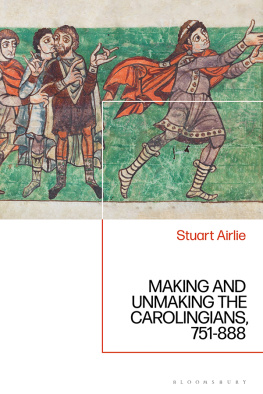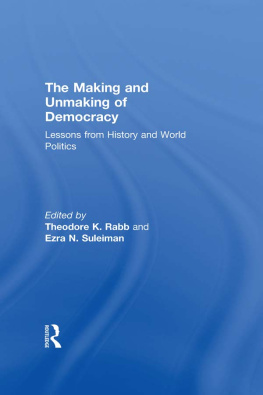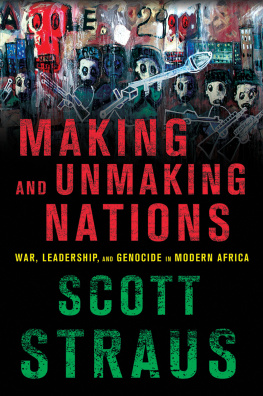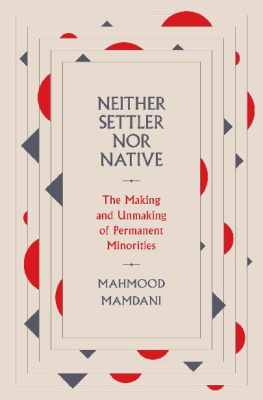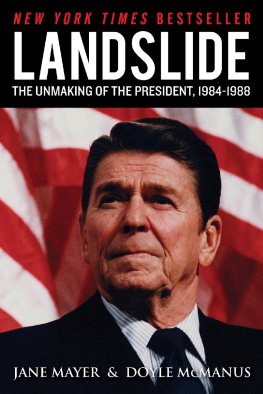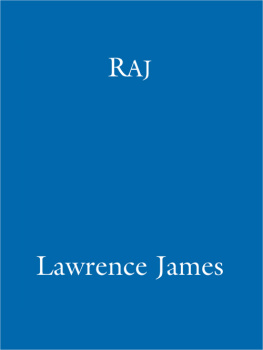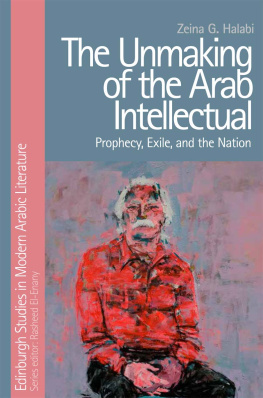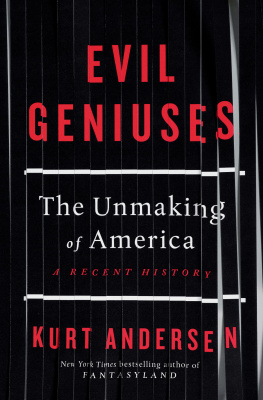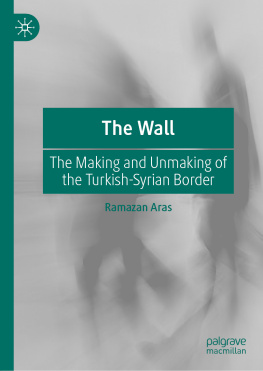Stuart Airlie - Making and Unmaking the Carolingians
Here you can read online Stuart Airlie - Making and Unmaking the Carolingians full text of the book (entire story) in english for free. Download pdf and epub, get meaning, cover and reviews about this ebook. publisher: Bloomsbury UK, genre: Religion. Description of the work, (preface) as well as reviews are available. Best literature library LitArk.com created for fans of good reading and offers a wide selection of genres:
Romance novel
Science fiction
Adventure
Detective
Science
History
Home and family
Prose
Art
Politics
Computer
Non-fiction
Religion
Business
Children
Humor
Choose a favorite category and find really read worthwhile books. Enjoy immersion in the world of imagination, feel the emotions of the characters or learn something new for yourself, make an fascinating discovery.
- Book:Making and Unmaking the Carolingians
- Author:
- Publisher:Bloomsbury UK
- Genre:
- Rating:4 / 5
- Favourites:Add to favourites
- Your mark:
- 80
- 1
- 2
- 3
- 4
- 5
Making and Unmaking the Carolingians: summary, description and annotation
We offer to read an annotation, description, summary or preface (depends on what the author of the book "Making and Unmaking the Carolingians" wrote himself). If you haven't found the necessary information about the book — write in the comments, we will try to find it.
Making and Unmaking the Carolingians — read online for free the complete book (whole text) full work
Below is the text of the book, divided by pages. System saving the place of the last page read, allows you to conveniently read the book "Making and Unmaking the Carolingians" online for free, without having to search again every time where you left off. Put a bookmark, and you can go to the page where you finished reading at any time.
Font size:
Interval:
Bookmark:
Making and Unmaking the Carolingians
Making and Unmaking the Carolingians
751888
Stuart Airlie

To Robyn, finally.
Contents
This is a book about a family and the empire that it ruled in what seems like a very remote world, the world of early medieval Europe. Like many royal families, the Carolingian family was a many-headed monster whose members could prey on each other even while they fought against outsiders who might envy or challenge their unique status as rulers. For a long time, from 751 to 888, this family alone provided the rulers of the kingdoms. This book looks at this royal family as a family and not just as a sequence of men who were rulers. The women of the family, those who married in and those who were daughters of kings, play a prominent role in this book, as they did in the realm. Children also appear on its stage. These women and children are important enough to deserve chapters of their own and they duly receive them, in the thematic . These thematic chapters are not self-contained but are part of my overall argument and analysis and I have placed them where they can deepen the argument and enrich the picture of the dynastys achievements and problems. The book thus offers a broad view of the political culture of the period where gender and the life-cycle are as prominent as the assemblies where rulers and ruled came together. At the heart of the vast Frankish realm was a family.
While medieval Europe can seem remote from us, I have tried to ask questions in this book that have a wider resonance for political culture and communication. Why do people obey authority? How far do people who believe that the authority that they obey is natural actually realize that they are in fact the ones who construct that authority which is, of course, far from natural? If a family is the source of authority, how does it make itself look more special than other families, and how does it convey and maintain that specialness in a pre-modern world without the communications and armies that help maintain authority of dynasties (political, criminal) today?
I hope that these threads will help guide the reader through the maze of the monster with all its endlessly repeated royal names. These names were part of the magic spell of royal charisma that this book seeks to explain, evoke and take apart.
This book has been a long time in the making and I have accumulated many debts in its writing. The fact that I completed it during the COVID-19 pandemic has brought home just how important co-operation is to any individual work. Those mentioned below will know how much I owe to their advice, criticism, support and work, more than can be conveyed in a list. Those whom I may have neglected to mention will also know my debt to them and I hope that they can overlook any forgetfulness on my part here.
The whole book was read by Jinty Nelson and Julia Smith and I am very grateful for their detailed critique and ultimate enthusiasm. Jinty Nelson read several chapters twice and she would doubtless have improved more chapters if I had kept sending them to her, but the book had to be finished. John Hudson read several chapters and I profited from his incisive comments. Various chapters were read by Mayke de Jong, Simon MacLean, Helmut Reimitz, Andrew Roach and Ian Wood and I thank them all for their support and advice. Over many years, Matt Strickland and Andrew Roach have listened patiently, I think, to ever-changing outlines of the books argument and concepts, and I thank them for their wisdom and their friendship. David Ganz has tested me on historical matters for a long time and is more responsible for the books argument than he knows.
Many of the ideas and arguments in this book were tested in meetings of various research groups that I had the good fortune to attend, and I am very grateful for these encounters, critical in every sense for the books development. The meetings of the research group on Staat and Staatlichkeit were key to the conceptualizing of the books arguments and I am immensely indebted to the core members of the group, particularly Matthias Becher, Hans-Werner Goetz, Jrg Jarnut, Mayke de Jong, Rgine Le Jan, Steffen Patzold, Walter Pohl, Helmut Reimitz, Bernd Schneidmller and Ian Wood. That groups various incarnations and afterlives also enabled me to benefit from discussions with Philippe Depreux, Max Diesenbeger, Stefan Esders, Sren Kaschke, Rutger Kramer, Janneke Raaijmakers, Irene van Renswoude and many others. The seminar rooms and cafes of Vienna and Utrecht have helped mightily in the making of this book. The research networks led by John Hudson and Ana Rodriguez on comparison of institutions in the Christian and Islamic Middle Ages were immensely stimulating. An invitation to deliver a paper to a research group based at the Netherlands Institute for Advanced Study Wassenaar resulted in rigorous critique from Mayke de Jong, David Ganz, Rosamond McKitterick, Helmut Reimitz and Els Rose that proved invaluable. A steady stream of books and offprints, as well as advice, from the members of all these groups helped me work on a European empire while based in the west of Scotland. Some chapters were delivered as papers at Mnster and Mainz, and I thank Gerd Althoff and Ludger Krntgen and their colleagues and students for their responses. I have learned much from conversations with Patrick Geary, Eric Goldberg, Jennifer Davis and Geoff Koziol, as well as from their own work.
I benefited from institutional support from the AHRC which awarded me a Fellowship (AH/I002464/1) which enabled me to finalize the form of the whole book, and I am very grateful for that support. As the book neared completion, I learned much from the members of my research network on The Castle and the Palace, funded by an Arts and Humanities Network Award from the Royal Society of Edinburgh. I have spent most of my professional life at the University of Glasgow and have on occasion found the workings of the institution to be challenging, but I have been extremely fortunate in my colleagues and friends at History in Glasgow. Lynn Abrams, Karin Bowie and Callum Brown provided very welcome support and practical help in the final stages of completion, as did the School of Humanities and the College of Arts, and I am grateful to them. Steve Marritt has been consistently generous with time and advice, and Mathilde von Blow and Phil OBrien, with other Glasgow colleagues and friends, have been warm in their encouragement. I owe much to the students of Glasgow, particularly those who have taken my Special Subject on Charlemagne over the years.
Bloomsbury Academic waited patiently for this manuscript to emerge and I thank them for that, as well as thanking the anonymous reader for their report.
I started thinking about this book many years ago, and was lucky enough to be able to discuss my initial ideas with the teacher who opened my eyes to the world of early medieval Europe, Patrick Wormald.
In the final stages of completion, and not only then, Mark Thompsons warm encouragement helped me make progress.
My family has lived with this book for a very long time, and I owe my family more than I can say. My brother John has always believed that I could finish it while expressing impatience at the time I was taking to do so. He has been a generous supporter throughout. My daughter Madeleine has grown up with this book and will not miss it when it has gone, but her happiness in seeing its end hove into view helped me through its final stages, and she has consistently reminded me of the wider joys of the world away from the desk. My wife Robyn has supported the author of this book with love throughout its making, nicely balanced with terse encouragements to him to just get on with it. In the last stages, she worked hard and selflessly to prepare the manuscript and to bring coherence to what often must have looked like primal chaos. I am forever grateful to her for that, and much else.
Next pageFont size:
Interval:
Bookmark:
Similar books «Making and Unmaking the Carolingians»
Look at similar books to Making and Unmaking the Carolingians. We have selected literature similar in name and meaning in the hope of providing readers with more options to find new, interesting, not yet read works.
Discussion, reviews of the book Making and Unmaking the Carolingians and just readers' own opinions. Leave your comments, write what you think about the work, its meaning or the main characters. Specify what exactly you liked and what you didn't like, and why you think so.

